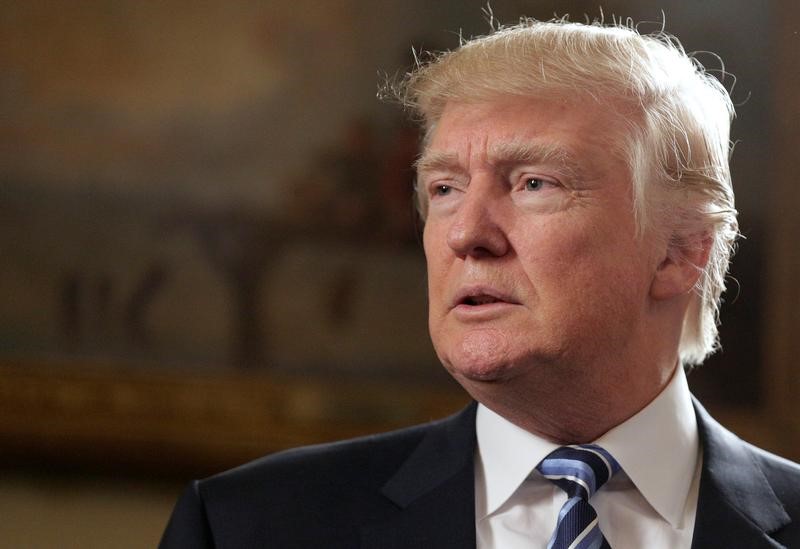By Dan Levine
(Reuters) - A group including former White House ethics attorneys will file a lawsuit on Monday accusing President Donald Trump of allowing his businesses to accept payments from foreign governments, in violation of the U.S. Constitution.
The lawsuit, brought by the Citizens for Responsibility and Ethics in Washington, will allege that the Constitution's emoluments clause forbids payments to Trump's businesses. It will seek a court order forbidding Trump from accepting such payments, said Deepak Gupta, one of the lawyers working on the case.
Trump does business with countries like China, India, Indonesia and the Philippines, the group noted in a statement.
"When Trump the president sits down to negotiate trade deals with these countries, the American people will have no way of knowing whether he will also be thinking about the profits of Trump the businessman," it said.
Trump told reporters on Monday the lawsuit was "without merit," when asked about the case after signing some executive orders in the Oval Office.
The White House referred questions to a law firm representing the president on ethics matters.
"We do not comment on our clients or the work we do for them," said the representative of the firm, Morgan Lewis & Bockius.
The case is part of a wave of litigation expected to be filed against Trump by liberal advocacy groups. It will be filed in federal court in Manhattan, Gupta said, and attorneys for the plaintiffs will include Richard Painter, a former ethics lawyer in Republican President George W. Bush's White House.
The impending lawsuit was earlier reported by The New York Times.
Eric Trump, one of Trump's sons and an executive vice president of the Trump Organization, told the Times on Sunday that the company had taken more steps than required by law to avoid any possible legal exposure, such as agreeing to donate any profits collected at Trump-owned hotels that come from foreign government guests to the U.S. Treasury.
"This is purely harassment for political gain," Trump told the newspaper.

The Constitution's emoluments clause states: "No Title of Nobility shall be granted by the United States: And no Person holding any Office of Profit or Trust under them, shall, without the Consent of the Congress, accept of any present, Emolument, Office, or Title, of any kind whatever, from any King, Prince, or foreign State."